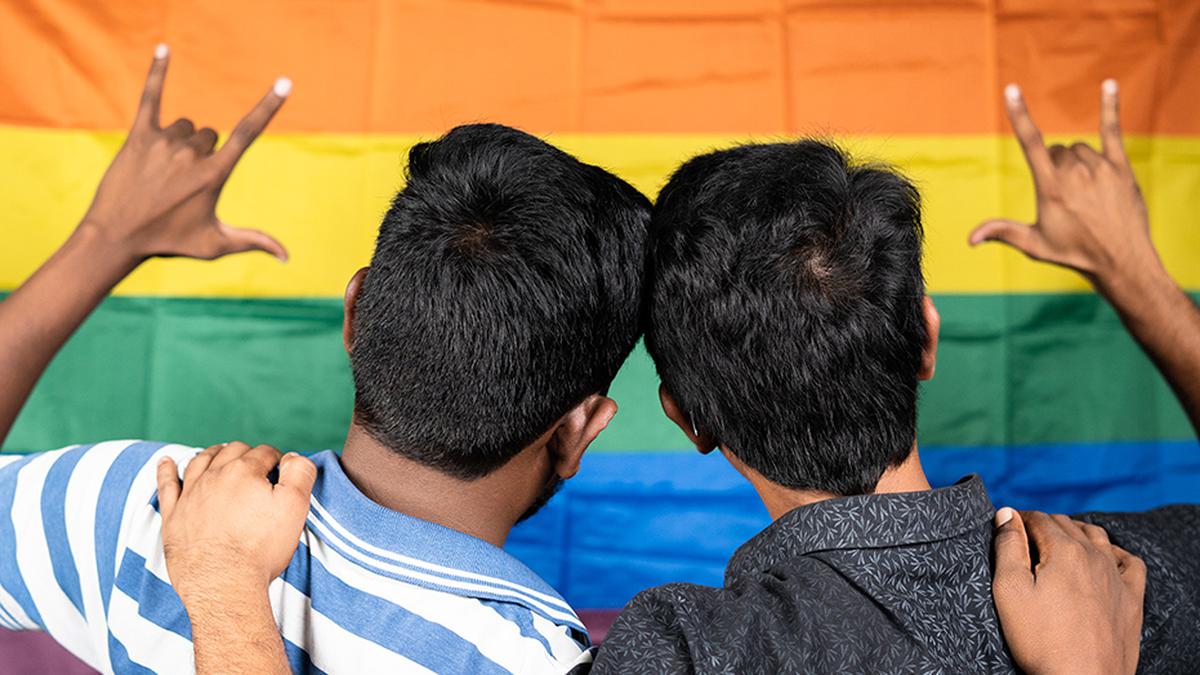
SC implicitly contemplated ‘stable, marriage-like relationships’ between same-sex persons while decriminalising homosexuality
The Hindu
Chief Justice of India D.Y. Chandrachud has said the moment the Supreme Court gave a “rainbow of hope” to the LGBTQIA+ community by decriminalising homosexuality in 2018, it had implicitly contemplated that “stable, marriage-like relationships” could exist between same-sex persons who do not treat their bond as “chance encounters”.
Chief Justice of India D.Y. Chandrachud on April 20 said the moment the Supreme Court gave a “rainbow of hope” to the LGBTQIA+ community by decriminalising homosexuality in 2018, it had implicitly contemplated that “stable, marriage-like relationships” could exist between same-sex persons who do not treat their bond as “chance encounters”.
“The moment we said homosexuality is no longer an offence under Section 377 [of the Indian Penal Code], we necessarily contemplated that there could be a stable, marriage-like relationship between two persons who do not treat these as chance encounters but as something more than that... That for them it is not just a physical relationship, but something like a stable emotional relationship,” Chief Justice Chandrachud observed during the third day of the Constitution Bench hearing of petitions seeking legal recognition of same-sex marriages.
The government had argued in an affidavit that the court had only decriminalised sexual intercourse between same-sex persons in its 2018 judgment in the Navtej Singh Johar case, and not legitimised this “conduct”. The court, while decriminalising homosexuality, had never accepted same-sex marriage as part of the fundamental right to life and dignity under Article 21 of the Constitution. The government had said a same-sex marriage cannot be compared to a man and woman living as a family with children born out of the union.
The petitioners have sought a broader interpretation of the Special Marriage Act of 1954 by making it gender-neutral and read the term ‘spouses’ into the heterosexual usages of ‘man’ and ‘woman’ in the law.
Chief Justice Chandrachud said the Parliament’s intention behind introducing the 1954 Act was to open up an avenue for people who were not falling back or relying on the diktats of their respective personal laws to get married.
Justice S. Ravindra Bhat described the 1954 Act as an “all-enfolding legislation”. “There was also a factor of addressing endogamy, which we cannot ignore,” Justice Bhat said.
“In the last 69 years, our law has evolved to recognise the fact when you decriminalise homosexuality, you also realise that these are not just one-off relationships. That these are also comprehensive and stable relationships. Therefore, by decriminalising homosexuality, we have not just recognised fleeting relationships between consenting adults of the same gender, we have also recognised implicitly the fact that people who are of the same sex would be in stable relationships,” Chief Justice Chandrachud said.

Several principals of government and private schools in Delhi on Tuesday said the Directorate of Education (DoE) circular from a day earlier, directing schools to conduct classes in ‘hybrid’ mode, had caused confusion regarding day-to-day operations as they did not know how many students would return to school from Wednesday and how would teachers instruct in two modes — online and in person — at once. The DoE circular on Monday had also stated that the option to “exercise online mode of education, wherever available, shall vest with the students and their guardians”. Several schoolteachers also expressed confusion regarding the DoE order. A government schoolteacher said he was unsure of how to cope with the resumption of physical classes, given that the order directing government offices to ensure that 50% of the employees work from home is still in place. On Monday, the Commission for Air Quality Management in the National Capital Region and Adjoining Areas (CAQM) had, on the orders of the Supreme Court, directed schools in Delhi-NCR to shift classes to the hybrid mode, following which the DoE had issued the circular. The court had urged the Centre’s pollution watchdog to consider restarting physical classes due to many students missing out on the mid-day meals and lacking the necessary means to attend classes online. The CAQM had, on November 20, asked schools in Delhi-NCR to shift to the online mode of teaching.










